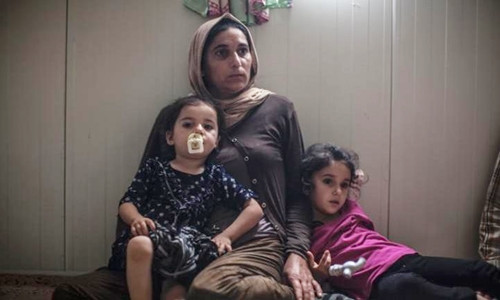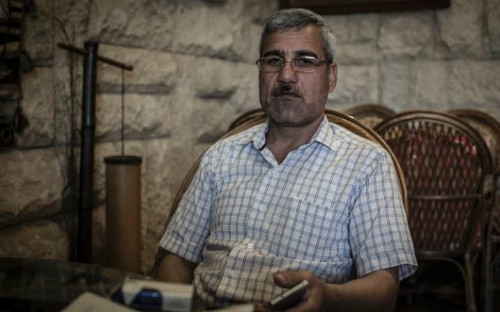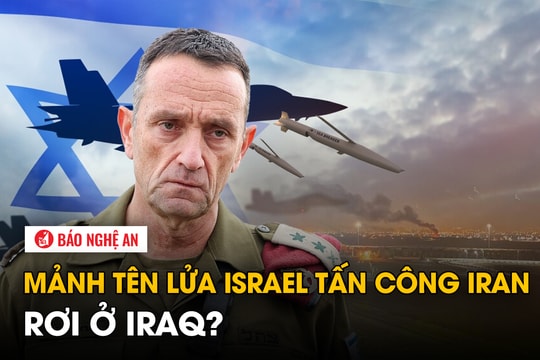The profession of rescuing IS sex slaves
Death always lurks for those who work secretly in IS territory to rescue women imprisoned by the group.
 |
Halo and her children were rescued from IS. Photo: Telegraph |
When Halo Kald, a 30-year-old Yazidi, was held in Raqqa, the stronghold of the Islamic State (IS) group, a veiled woman approached and pressed a Quran into her hands.
“Follow me,” the woman said. At that moment, Halo’s captors were praying. Was it a trap? Seeming to see Halo’s hesitation, the woman took out a cell phone and played a recording for Halo to listen to.
Halo quickly recognized the voice as speaking Kurmanji, a Kurdish dialect commonly spoken by the Yazidis. Halo followed the woman."I recognized the voice of Abdullah, who had been secretly chatting with me for two weeks. I knew this was my chance to escape," Halo recounted.
According to the Telegraph, in August 2014, IS elements swept through Halo’s village, located south of the town of Sinjar, northwest Iraq. More than 400 men were then executed and buried in a mass grave. Halo’s son, Hani, 9, was also put with the men, before being released because of his young age. The women and children were then taken to the IS stronghold of Tal Afar, located between Mosul and Sinjar, and locked up with other prisoners in an old school. Many women became sex slaves for IS.
They could have escaped, but the chances were slim. Halo remembers a mother and her two children who were spotted trying to escape. IS fighters then took the children away, but the mother was never seen again.
During her captivity, Halo was starved for days and often tortured and treated like a slave, but for the sake of her children, she still held on to a glimmer of hope.
An Arab family with ties to IS took pity on Halo and lent her their phone so she could talk to her husband, Cihad. Halo then contacted Abdullah, one of the top five Yazidi rescuers in Duhok, Iraq, with a network of about 30 trusted contacts.
"We use the Quran as a disguise, pretending to visit graves to mourn for our loved ones," Abdullah revealed. "IS's Achilles' heel is Islam. The Quran acts as a passport, removing all doubts."
After passing through the checkpoints, Halo was taken to a shelter on the outskirts of Raqqa. She and her children hid in an underground bunker for five days with other Yazidis. Finally, after being driven through the night, they reached the Kurdish-controlled city of Kobane.
Death lurks
Before being swept away by IS, the Yazidi population in Sinja was more than 400,000. IS executed 3,000 Yazidi men, and captured more than 6,000 women and children.
Over the past two years, more than 2,500 Yazidi prisoners have escaped or been rescued in operations similar to Halo’s. All of the rescuers have faced death.
One of them, Idriss, survived a mass execution. When he was shot in the leg, he pretended to be dead under the bodies of other massacred people. After the incident, Idriss refused to leave Iraq. "Helping others escape was a completely natural reaction after experiencing the nightmare of being buried alive."
Mr. Abdullah said he had no intention of getting involved in the world of "human trafficking," until his kidnapped niece called from Raqqa. "I was at my brother's house when the phone rang. My niece was asking for help," he recalled.
After freeing his nephew in October 2014, Abdullah set up a team of people who specialize in freeing prisoners from IS and their collaborators.
Before the war, he had been in the auto parts business across Syria, so he had connections from Raqqa to Aleppo. Now he uses that trusted network to carry out around 250 successful rescues.
"The rescue operation started as soon as the kidnapped girl called home. Without a phone call, we cannot help," Abdullah said.
 |
Abdullah, an IS hostage rescuer. Photo: Telegraph |
After the family contacted Abdullah, he began gathering information about the abductees. Surveillance was conducted by his contacts on the ground. They sometimes watched the girls for weeks before attempting to rescue them.
Escorting prisoners from custody is the most dangerous. "We usually do it when the kidnappers are praying. That's when they are most vulnerable," Mr. Abdullah explained.
If the covert operatives were caught inside IS-controlled territory, they were almost certainly executed. Abdullah rotated his men every two operations to ensure their safety. But success also required strategic investments: time and ingenuity.
In the center of Raqqa, rescuers have rented a bakery and a laundry facility to deliver bread and clothes to homes where Yazidis are held. According to Mr. Abdullah, his network is made up entirely of local Arabs, some of whom have previously fought for IS.
“One of my members, Omar Ahmed, lost an arm fighting for IS. He then came to work for me,” Abdullah recalled. “Because he had been wounded in battle, no commander suspected anything, making him an invaluable asset.”
Abdullah enthusiastically recounted how he had fooled IS. But life and death were sometimes just a phone call away. After 38 operations in 11 months, Abdullah’s one-armed partner was captured.
"Omar Ahmed went to Raqqa after receiving a rescue offer. It was a trap set by IS," Abdullah said. "He was beheaded in public to set an example for others." With each arrest of a rescuer, the network became more difficult and the work more dangerous.
Omar Ahmed was not the first, and certainly not the last. “IS knew we had operatives,” explained Khalil, a Yazidi prisoner rescuer whose network was based mainly in Mosul. “As soon as they suspected someone, they set a trap.”
Khalil described how one girl was told by her captors that she would be allowed to return to her family and asked to go to the home of Mustafa, an Arab suspected of supporting the Yazidis.
Despite her doubts but wanting to be freed, the girl followed the orders. "After a few days, IS searched the house and they found the girl. It was a trap for Mustafa. They killed him immediately."
The high price
After some of his Arab associates were executed, Abdullah began paying his network members more and more. “Since the executions, my entire network has been demanding more money,” Abdullah said. “In the world of people smuggling, the more dangerous a rescue is, the higher the cost.”
People like Abdullah and Khalil became heroes in the Yazidi community, helping to rescue hundreds of kidnapped women.
Amy Beam, an activist in Duhok, sees it differently, however. “These Yazidis like to talk. The real heroes are the Sunni Arabs who work as intermediaries in IS-controlled areas.”
According to this activist, people like Abdullah and Khalil are just remote logistics coordinators. Because they are Yazidis, they never have the opportunity to operate in IS-controlled areas.
Khalaf, a resident of the Qadia refugee camp, but from the same village of Kocho as Halo, said his family was captured by IS and taken to Mosul.
He recounted how his daughter, Leila, escaped the jihadists with the help of a local Arab named Akram, who called Khalaf when he found Leila and hid her in a house for 45 days with other Yazidi fugitives.
"Finally, he passed through checkpoints in Mosul pretending Leila was his daughter," Khalaf said. "Akram refused to accept any money. He knew a lot of Yazidis and simply wanted to help ease their suffering."
Along with his cousin, Suleyman, Khalaf rescued hundreds of other Yazidis who had been captured from their village. Unlike Abdullah and Khalil, who lived in large, newly built apartments on the outskirts of Duhok, the brothers lived with the people they sought to help.
"In Sinja, Arabs and Kurds live together. We have a lot of friends and it is this friendship that helps rescue the women. But when money starts changing hands, rescuing the Yazidis becomes a business," Khalaf said.
Arabs who once risked their lives to rescue kidnapped women without expecting anything in return now ask themselves: "If everyone around them is making money, why can't I, when the mission is so dangerous?"
There are also fighters within IS who try to sell Yazidis back to their families for profit. Last year, Suleyman received a call from Raqqa from his sister. A Moroccan IS fighter had bought her and wanted to sell her back to her family. The asking price was $45,000.
According to Khalaf, in the early days of the rescue operations, the amount of money spent was quite low. “Sometimes ISIS members would ask for only $2,000 to free the women, but now $20,000 is considered cheap,” Khalaf explained. And because the price was so high, many Yazidi families could not afford it.
Activist Amy Beam said rescuing hostages was not a long-term solution. "The only way to protect the Yazidis and other communities is to defeat ISIS and establish lasting peace in the Middle East," she said.
According to VNE
| RELATED NEWS |
|---|


.jpg)


.jpg)
.jpg)

